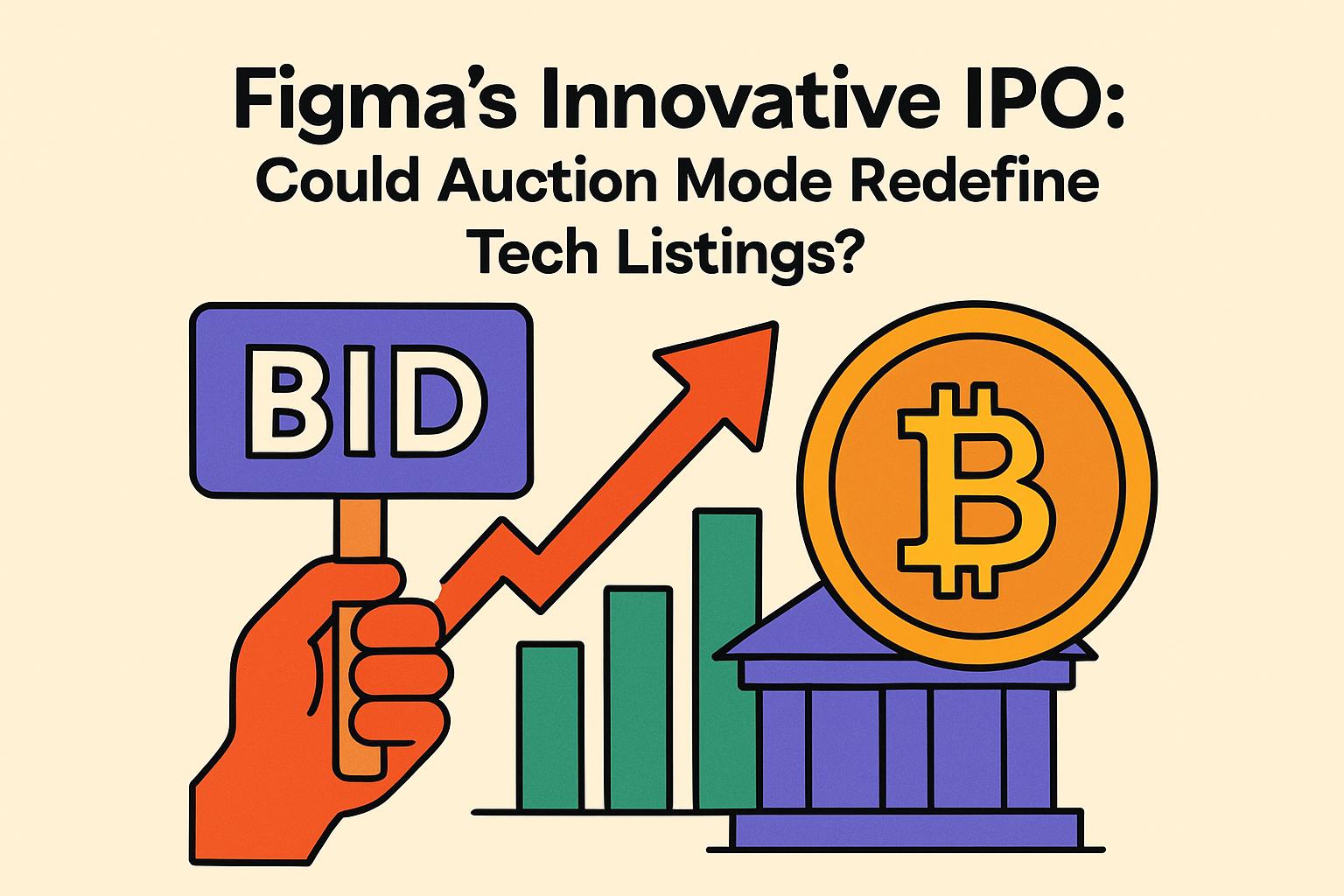The tech world is abuzz as Figma Inc., a leader in UI/UX design collaboration software, gears up for its initial public offering (IPO) on July 30. What sets it apart is the company’s choice to employ an auction-based pricing model—a method reminiscent of those used during the pandemic by companies like DoorDash and Airbnb. Figma aims to raise a whopping $1.03 billion in this bold move.
Auction-Based IPOs: A Bold Strategy
Located in San Francisco, Figma is asking investors to present their ‘best IPO bid,’ indicating how much stock they wish to purchase and at what price, diverging from the conventional pricing methods. This approach allows Figma to capitalize on the resurgence of interest in tech stocks. However, Jay Ritter, a finance professor at the University of Florida, warns that firms like Unity and Marqeta, which previously adopted auction pricing, didn’t meet expectations post-IPO.
Despite mixed results from past case studies, Figma’s auction-mode IPO injects much-needed excitement into the tech startup IPO market, drawing global investor attention as the anticipated date approaches. Yet, it remains a market observation rather than investment advice.
The Mechanics of Auction-Based Pricing
David Erickson of Columbia Business School, who previously led global equity capital markets at Barclays, explains that Figma wants to showcase itself as a hot trading stock. The auction model, theoretically, more accurately reflects market sentiment and valuation, giving Figma greater control over price volatility immediately following its public debut. This was notably successful for stablecoin issuer Circle, whose stock surged over 168% on its first day, maintaining a valuation significantly above its IPO pricing.
Aiming to Eclipse Adobe’s Valuation
By opting for an auction model, Figma aspires to not only lock in a precise market valuation but also approach the $20 billion valuation benchmark set by Adobe’s 2022 offer—a deal that ultimately fell through due to regulatory scrutiny. Nevertheless, it remains a significant reference point for Figma. Supported by leading underwriters like Morgan Stanley and Goldman Sachs, this IPO is likely among the most watched in the U.S. tech sector this year.
What is Figma?
Founded in 2012 by Dylan Field and Evan Wallace, and headquartered in San Francisco, Figma developed a cloud-based design platform that supports real-time collaboration among design teams. This innovation has revolutionized the workflow between designers, engineers, and product managers. During the COVID-19 pandemic, Figma’s use skyrocketed, becoming an indispensable tool for remote work and digital product development. Today, it is used by major global companies like Google, Netflix, and Spotify, cementing its role as a pivotal collaboration platform in design and tech teams worldwide.

![[News] Bitcoin at a Turning Point? 10x Research Signals a Bullish Macro Shift Ahead](https://cryptoexplores.com/wp-content/uploads/2025/06/new20250616.jpg)
![[News] Binance Lists $HOME, the Gas-Free, Bridge-Free All-in-One DeFi App](https://cryptoexplores.com/wp-content/uploads/2025/06/news20250617.jpg)